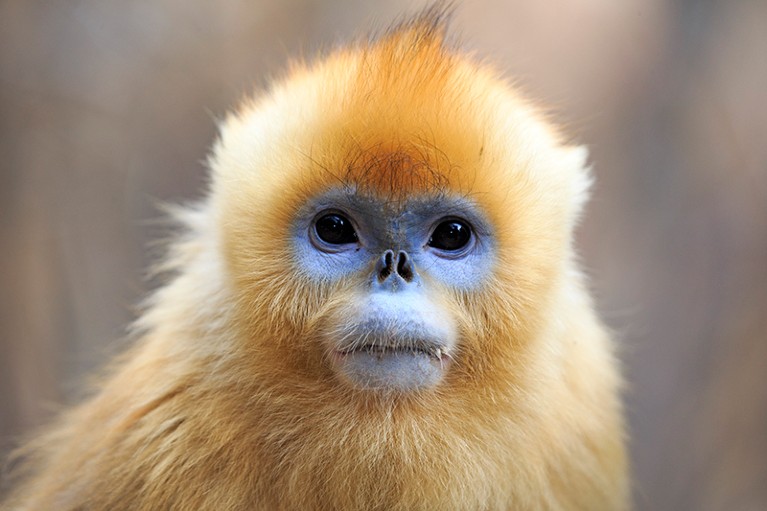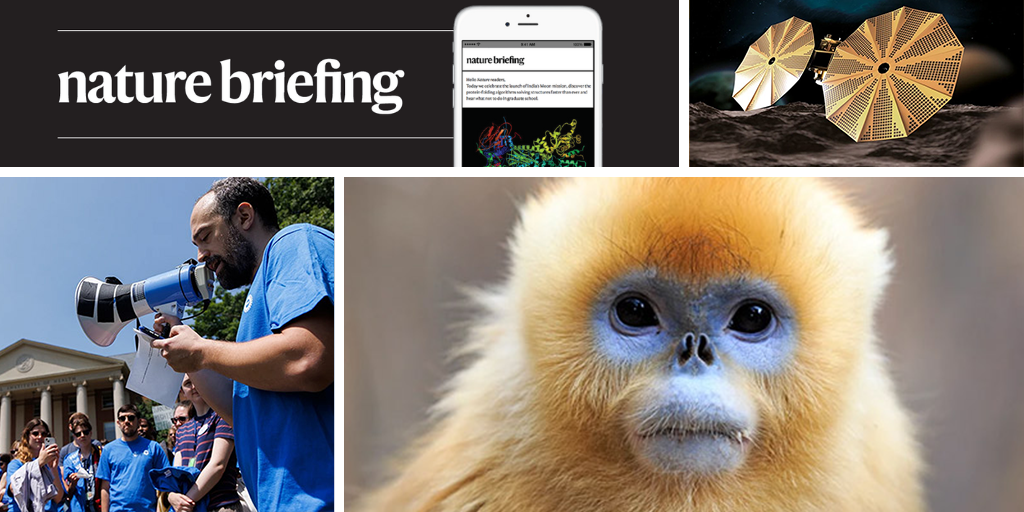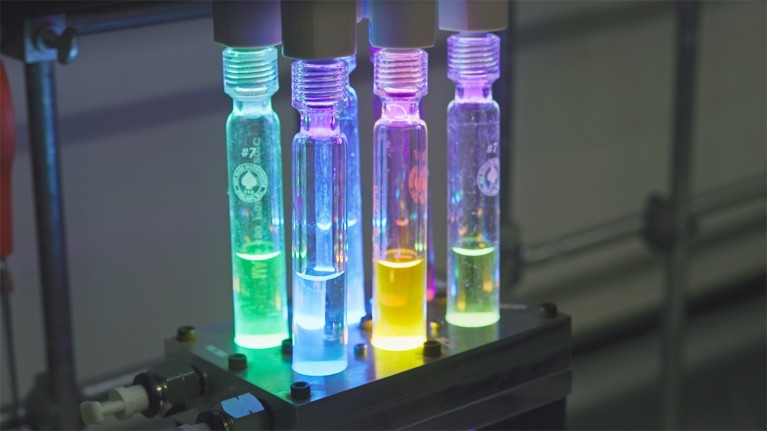Hello Nature readers, would you like to get this Briefing in your inbox free every day? Sign up here.

The golden snub-nosed monkey (Rhinopithecus roxellana) is one of only a handful of primate species that have complex multilevel social structures.Credit: Sylvain Cordier/Gamma-Rapho via Getty
There were surprises aplenty for researchers who undertook the largest ever primate-genome study. For example, the genomes of the 233 primate species examined were used to classify 4.3 million common gene variants present in the human genome. By assessing how common those variants were across species, the researchers were able to infer that around 98.7% of the variants they checked probably do not cause disease in humans. Before the international effort, just 10% of primate species’ genomes had been sequenced. Now nearly half of them have been catalogued.
Reference: Science paper 1, paper 2, paper 3, paper 4, paper 5, paper 6, paper 7, paper 8 & Science Advances paper 1, paper 2
The United Arab Emirates (UAE) Space Agency will send a spacecraft beyond Mars to orbit seven asteroids before landing on one of them. The mission’s final destination is the asteroid Justitia, an intensely red space rock that’s rich in water and organic material. The spacecraft will launch in 2028 with the aim of arriving on Justitia in 2035. If successful, it will be the Middle East’s first — and the world’s fifth — mission to land on an asteroid.
The watered-down language in the latest draft of the ‘pandemic treaty’ is worrying researchers. The document was circulated at the World Health Assembly in Geneva last week, in response to the world’s mixed success in grappling with COVID-19. Early drafts called on member states to pause intellectual-property rights that could hold back treatments and vaccines, and commit to widespread access for those who need them. Words such as “shall” and “will” have shifted to “urge” and “support”, says global-health researcher Kelley Lee. “I have no doubt that there has been heavy lobbying by commercial actors across a range of industries.”
Thousands of early-career researchers at the US National Institutes of Health (NIH) have started the process to form a union, to be called NIH Fellows United. They aim to raise pay, improve benefits and bolster efforts against harassment and excessive workloads. “Doing science here at the NIH is fantastic,” said neurologist Tara Fischer at a rally yesterday on the agency’s campus. “But it’s not so fantastic to be the people doing science here. We’re tired of waiting around for our working conditions to improve.” If certified as a union, NIH Fellows United could not strike, because federal workers are forbidden to do so. But it could use other bargaining tactics, such as demonstrations, to push for improvements.
Features & opinion
After the COVID-19 pandemic triggered a seismic shift in the way research studies are shared, a group of early-career researchers (ECRs) repurposed their institutional journal clubs to focus on preprints that have not yet been peer reviewed, and to share their analyses publicly. “Our system can successfully identify the most impactful studies before they are published in peer-reviewed journals,” they write. Furthermore, it helps ECRs to build confidence in their reviewing skills and has proved genuinely helpful to preprint authors.
An online-shopping system learns to know us better than we know ourselves in the latest short story for Nature’s Futures series.
An artificial-intelligence system called Geneformer can help to untangle complex genetic interactions. If it is fed huge amounts of gene-activity data, the machine can make predictions about which genes should be switched on or off to avoid disease. This is particularly useful when few data are available, which is the case with the heart-muscle disease cardiomyopathy. “We were able to identify candidate therapeutic targets that, when we tested them experimentally in the lab, did indeed improve the function of contracting of these heart-muscle cells,” cardiovascular geneticist Christina Theodoris tells the Nature Podcast.
Nature Podcast | 23 min listen
Subscribe to the Nature Podcast on Apple Podcasts, Google Podcasts or Spotify.








More News
Author Correction: Stepwise activation of a metabotropic glutamate receptor – Nature
Changing rainforest to plantations shifts tropical food webs
Streamlined skull helps foxes take a nosedive